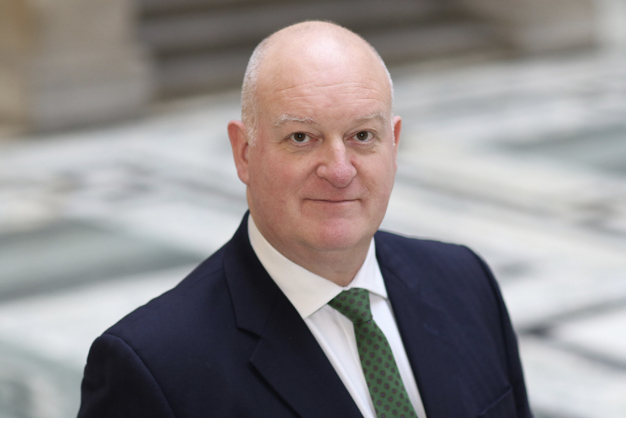


In 1938, the world watched as Western powers appeased aggression in Munich, hoping concessions could preserve peace. We know how that ended. Today, in Ukraine, a similar test unfolds. Russia has invaded, its armies press forward, yet the world hesitates.
Today, October 9th, 2025, Ambassador Holland delivered a warning at the OSCE in Vienna that should echo in every Western capital: the stakes in Ukraine are existential — for Ukraine and for the rules-based international order itself.
The difference is that, unlike in 1938, the West still has a chance to act decisively. But that chance will not last indefinitely.
Defenders’ Day in Ukraine honours those who have given everything to defend their homeland. Ambassador Holland made it clear that Ukraine is not fighting only for its own territory. It is defending the principles upon which Western security rests: sovereignty, territorial integrity, and adherence to international law.
Every metre of Ukrainian soil defended, every missile intercepted over Kyiv, is a safeguard for Europe itself. To falter now is not just morally indefensible; it is strategically reckless. Hesitation will embolden Moscow and signal to other authoritarian regimes that the West’s commitments can be ignored.
Russia continues to portray itself as an unstoppable force. Reality tells a different story. Since November 2022, it has captured just 1% more Ukrainian territory, at the cost of over a million casualties and thousands of destroyed tanks, aircraft, and artillery.
This is not a juggernaut; it is a faltering army. Ukraine can push it back further — but only if the West provides sustained, unwavering support. To drift now is to risk turning an aggressive retreat into a permanent foothold for Moscow.
Frustrated on the battlefield, Russia has escalated attacks on civilians: hospitals, energy infrastructure, apartment buildings. These are not incidental; they are deliberate strategies to sow terror and break morale.
If the West hesitates, it tacitly condones this brutality. Authoritarian powers do not respect morality alone; they respect strength. The West must demonstrate both — moral clarity backed by credible, material support.
Moscow is straining under the weight of war. Budget deficits widen, taxes rise, and social services are cut to sustain military operations. With decisive Western military and economic backing, these weaknesses can be exploited. Delay, however, will allow Russia to regroup, prolong the conflict, and solidify gains. The clock is ticking.
Backing Ukraine is often framed as a humanitarian gesture. It is far more than that. It is strategic self-interest. A Russian victory would embolden aggressors, weaken NATO credibility, and destabilize Europe. A Ukrainian victory would reinforce the principle that aggression carries consequences.
The West faces a stark choice: act decisively now or face a future where authoritarian powers set the rules.
Talk of “Ukraine fatigue” in Western capitals is dangerous complacency. Moscow counts on it. Every delayed weapons shipment, every hesitant pledge, every budgetary squabble signals weakness. Unity and urgency are the West’s most powerful tools. They must be wielded, not squandered.
Ukraine has shown extraordinary courage. It is time for the West to demonstrate equal resolve — unwavering, unflinching, and unequivocal.
Ambassador Holland’s remarks were not diplomatic courtesy. They were a clarion call. The defence of Ukraine is the defence of Europe’s security, its values, and its credibility. This is not someone else’s fight — it is ours.
If the West wants to preserve the peace it has long taken for granted, it must ensure Ukraine wins — decisively, and without hesitation. History will not forgive delay.
You must be logged in to post a comment.
Germany’s Fighter Jet Spree Is a Wake-Up Call for Europe’s Complacent Defence